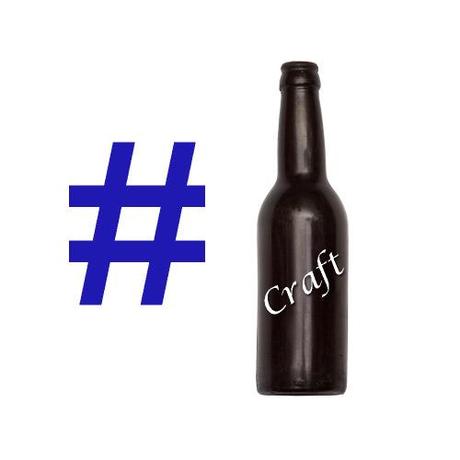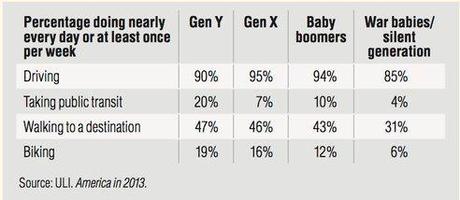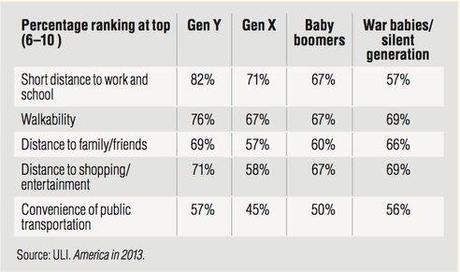
This week I’m working on posts to respond to a question posed by reader Briana, who took interest in my (now ongoing) series about the cross section of craft beer and Millennials, who range from 18 to 33.
Mainly, she was curious about whether or not young drinkers have an affinity for buying cheaper beer to get more, rather than spending extra money on craft beer and ending up with less.
The way we left things in my previous post showed that while buying cheap beer for the sake of binge drinking may certainly be a case for some Millennials, available data suggests it’s heavily skewed toward 18 to 24-year olds and most likely, college students.
So if that’s the case, let’s get back to the original question from Briana:
…why are the young, broke, and cool more interested in spending $5 or more on a craft beer when they could be buying a cheaper beer and getting more of it?
To me, there are actually several sociological and cultural patterns that may lend themselves to answering this question. Aside from the natural response, “because craft beer tastes better,” of course.
Where Millennials Live
There are lots of factors that can point young beer drinkers toward craft beer, but it’d be silly of me to ignore the most important part of living situations: location, location, location.
That’s what piqued my interest after looking into where Millennials are migrating. As it’s been before, cities are an attractive place for youth, but there’s more to it than that.
I looked up the top places where Millennials have been moving and they are no doubt some of the “who’s who” of emerging or growing cities in the country. Here’s a table showing the top-15 city locations, but I’ve also matched them up with each state’s overall percentage of population growth as well as the latest data available for the growth of breweries:
City
State
’10-’12 State pop inc. (%)
2011 Breweries (state)
2012 Breweries (state)
’11-’12 Brewery inc.
Washington, D.C VA 2.31% 40 48 8
Denver CO 3.15% 127 151 24
Portland OR 1.78% 121 140 19
Houston TX 3.63% 57 84 27
Austin TX 3.63% 57 84 27
San Francisco CA 2.11% 261 316 55
Seattle WA 2.56% 134 158 24
Riverside CA 2.11% 261 316 55
Dallas TX 3.63% 57 84 27
Charlotte NC 2.27% 57 70 13
Minneapolis MN 1.42% 34 47 13
Oklahoma City OK 1.69% 9 10 1
San Antonio TX 3.63% 57 84 27
Kansas City MO 0.55% 43 45 2
New Orleans LA 1.51% 8 8 0
For more ambiguously located cities (D.C. and Kansas City) I’ve placed them within one of two possible states: Virginia and Missouri, respectively.
Important to note: nearly all these states rank within the top half of states that are growing the fastest, many of which also are seeing an increase in their beer-related economy. At a time when beer is booming and more breweries are opening everyday, it may come as no surprise if these areas are also seeing an increase in brewery or beer-centric businesses.
One of the emerging trends for Millennials’ migration is toward urban environments. Not just because the city is an attractive place – as it surely has been for youth throughout the decades – but also because city living and its benefits are more valuable to Millennials than other age groups. For instance, alternative transportation is up:

But social and cultural advantages of a city are also seen a big difference in Millennial interest. Walkability to entertainment (coughBEERcough) sounds good to me:

All this is to say that influences of city living and a changing/growing beer economy make for a perfect storm to offer young beer drinkers all the variety they want. That’s important because as we know, Millennials love variety when it comes to beer:
Nearly 70% of millennials choose #craftbeer b/c of experimentation. (via @nielsen) #bbsession
— Chris Furnari (@BrewboundFurn) December 5, 2013
How Millennials Live
But it’s not only where Millennials live, it’s how they live that can have an impact on beer-related choices. If we know Millennials enjoy being part of a group and engaging in social activities as a group – especially dining – the way in which Millennials live makes a difference.
Cohabitation would seemingly have an impact on Millennials’ social decisions, especially when roommates are in play. While much has been made of Millennials unique situation of spending longer periods of time living with parents, it’s also worth noting the strained economy they deal with also pushes them toward living with roommates, which enhances potential for city dwelling, which increases the chances of being influenced or introduced to craft beer … which would allow Millennials to find the variety of beer experiences they seek.
As the most educated generation, Millennials are apt to focus on careers, which can delay marriage, which then can push this generation to focus on roommate living:
The most recent figures estimate just over a quarter of American Millennials are living with roommates. Most of this change has come at the expense of spouse cohabitation, which is less than half its 1968 rate, down from 56% to 23% in 2012.
How does marriage have potential impact with beer-related decisions? Because as marriage rates fluctuate, perhaps it’s friendship that is increasingly prioritized. In fact, young people may be more and more putting platonic friendships before partnerships. This makes a difference, because prior to marriage and kids, Millennial spending behavior is more about quality over quantity, which can translate to focusing on better tasting craft beer or what will offer more unique experiences.
Why This May Impact Beer Choices
Returning to Briana’s question … what does all this have to do with Millennials willing to spend more on craft beer over cheaper alternatives?
If we know that the ultimate goal for the majority of non-college aged Millennials isn’t to binge drink and they’re moving to cities and states flourishing with craft beer, purchase behaviors may follow suit. Especially when friendships and (presumably) roommate living is increasing. Consider this list:
- Millennials love craft beer.
- Millennials love encouraging others in their peer group.
- Millennials trust friends over corporate mouthpieces.
- Millennial beer drinkers (like other age groups) can be subject to groupthink.
As craft beer becomes more mainstream across the country, many places where Millennials live, work and play are acting as epicenters for this growth. Especially when finding local beer is easier than ever and that next brewery may just be 10 miles away (or less).
Even outside of bottle shops, breweries or bars, convenience stores are seeing an increase in both craft beer stock and craft beer purchasing. As something of an easy central hub for shopping in cities, this is where Millennials are increasingly making purchases. Restaurants are following in the trend as craft beer becomes more important for their financial success. This correlates to Millennials, who focus on local and unique experiences.
Again, “why are the young, broke, and cool more interested in spending $5 or more on a craft beer when they could be buying a cheaper beer and getting more of it?” I suppose there could be many reasons, but it seems that socio-cultural shifts, which certainly aren’t new for young drinkers, point toward a lifestyle or belief system that values the idea of new experiences and experimentation. The rise of craft beer in recent years makes this relationships unique as Millennial palates mature at a time when beer options are plentiful, to say the least.
When it comes to beer, Millennials are going to get their variety one way or another. No surprise, it’s going to be through craft beer, which is everywhere.
All this is not meant to be an exhaustive look at the “who” and “why” of Millennial craft beer interest, but I hope it does help to piece some of the puzzle together. As always, I’m curious what you think.
Related:
- Who Are the Millennial Beer Drinkers? Part 1: Do We Have a Problem?
- AB InBev is (kind of) Losing and It’s All the Millennials’ Fault (Again)
- Why Local Beer is (More and More) a Young Person’s Game
+Bryan Roth
“Don’t drink to get drunk. Drink to enjoy life.” — Jack Kerouac

